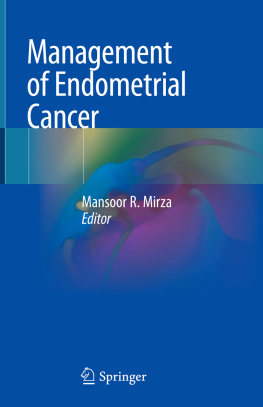Memoirs
of a Muhi n di
F leeing E ast A frica for the W est
Mansoor Ladha

2017 Mansoor Ladha
All rights reserved. No part of this work covered by the copyrights hereon may be reproduced or used in any form or by any meansgraphic, electronic, or mechanicalwithout the prior written permission of the publisher. Any request for photocopying, recording, taping or placement in information storage and retrieval systems of any sort shall be directed in writing to Access Copyright.
Printed and bound in Canada at Marquis. The text of this book is printed on 100% post-consumer recycled paper with earth-friendly vegetable-based inks.
Cover and text design: Duncan Campbell, University of Regina Press
Copy editor: Alison Jacques
Proofreader: Kristine Douaud
Cover photo: David Hurn Ugandan Asians arrive from Uganda. 1972 G.B. England. London. Heathrow Airport.
Library and Archives Canada Cataloguing in Publication
Ladha, Mansoor, author
Memoirs of a muhindi : fleeing East Africa for the West / Mansoor Ladha.
Issued in print and electronic formats.
ISBN 978-0-88977-474-2 (hardcover). ISBN 978-0-88977-475-9 ( PDF ).
ISBN 978-0-88977-476-6 ( HTML )
1. Ladha, Mansoor. 2. JournalistsCanadaBiography.
3. MuslimsCanadaBiography. 4. ImmigrantsCanadaBiography.
5. PersecutionAfrica, East. 6. Africa, EastPolitics and government.
7. Africa, EastSocial conditions. I. Title.
PN4913.L33A3 2017 070.92 C2017-900245-7 C2017-900246-5

Saskatchewan, Canada, S4S 0A2
tel: (306) 585-4758 fax: (306) 585-4699
web: www.uofrpress.ca
0 9 8 7 6 5 4 3 2 1
We acknowledge the support of the Canada Council for the Arts for our publishing program. We acknowledge the financial support of the Government of Canada. / Nous reconnaissons lappui financier du gouvernement du Canada. This publication was made possible through Creative Saskatchewans Creative Industries Production Grant Program.



This book is dedicated to the people
of Tanzania for their support
and friendship during my early years
and
to the people of Canada for accepting
immigrants, minorities, and refugees
and allowing them to make their
new homes in Canada.
Diaspora
If you call yourself a French-Canadian, Indo-Canadian, Irish-Canadian, German-Canadian, Chinese
Canadian, African-Canadian, or any other hyphenated-Canadian, then you are part of the worldwide diaspora.
In Greek, the word diaspora means to scatter, but today we use the term to describe a community of people who live outside their shared country of origin or ancestry but maintain active connections with it. A diaspora includes both emigrants and their descendants. While some people lose their attachment to their ancestral homeland, others maintain a strong connection to a place their ancestors may have left generations ago.
Over the last forty-five years, the number of people living outside their country of origin has almost tripledfrom 76 million to more than 232 million. More than 3 percent of the worlds population now lives outside of the country where they were born. If migrants made up a single nation, it would be the fifth largest in the world.
International Diaspora Engagement Alliance
(adapted)
Contents
Preface
During my last years in Africa, Asians were increasingly scared to put their thoughts on paper for fear of reprisal. Tomorrow they will come and put us in jail was a commonly stated fear. The British colonial authorities didnt encourage freedom of speech, but following independence the situation became worse. When African governments took over, they established one-party systems, banning other political partiesa clear indication they didnt want any alternative views.
Today, most of these African-born Asians reside in Western countries, where they enjoy freedom of speech under charters of rights. Their contribution to our democratic discourse, however, is slowly and gradually disappearing. The Asians who were forced to flee colonial Africa are dying with each passing year. The stories of what they lived through, what they had to give up for freedom, are being lost. Therefore, those of us who are left, we old-timers, need to share our experiences, our persecution, our knowledgeit is our history.
As a group, Asians in East Africa kept to themselves and were a close-knit community. The three-tiered British colonial order kept the races segregated in schools and in residential areas: the British on top, the Asians in the middle, and the black Africans at the bottom; socially, the three peoples hardly interacted before independence.
Many Asians also do not drink alcoholoften a prerequisite to social intermingling in a modern society. In East Africa, cocktail parties at sunset, or sundowners, were common among government departments, diplomatic embassies, and private companies. Hence, Asians were left out of the inner circle of the decision-making echelons of society. Also, among the Asians, Muslims are forbidden to eat pork, while Hindus do not eat beefadditional social barriers.
But despite these handicaps, the sons and daughters of the coolies who built the railways in Africa, the Asian entrepreneurs who opened up the interior, and the traders whose spirit of free enterprise brought them to the shores of Zanzibar made an immense contribution as a whole. The resulta thriving and prosperous Asian community in East Africawas the envy of the African majority.
Despite their contribution, economically and commercially, it is unfortunate that no matter how hard they tried, no matter how strong their urge to belong, that desire remained unfulfilled and the Asians had to leave the countries where many of them had been born. No matter how hard they tried to identify themselves with the countries of their birth, to build bridges and seek oneness with the Africans, their brown skinand perhaps their successgot in the way. The Africans rejected the Asians, viewing them with suspicion and prejudice. Despite perhaps having lived in East Africa for generations, they were seen as people without a country, without a home.
Not much is written about East Africas Asians by East Africanborn Asian writers. As such, there is a need for us to write about our experiences in Africa, our accounts of our childhood, our community, and the hardships our ancestors and our families had to undergo.
Thus, as an East African Asian, and especially as a journalist, I felt compelled to write my memoirs, to tell the story of a descendant of immigrants, brown in colour, living in a black society (Tanzania), who later became a brown immigrant living in a white society (Canada). I hope to shed light on the experiences felt by immigrants, the challenges of cross-cultural differences, the hurt of discrimination, and other hardships of displacement.
Most books on Africa inevitably have a political theme, and usually they are written against a backdrop of upheaval, poverty, and violence. As someone born in Africa, Ill never forget my childhood, my neighbourhoods, my school, my classmates, my friends, and my teachers. I loved Tanzania and was willing to die for it, but the circumstances to stay were not in my favour and, regrettably, I had to leave the country of my birth. However, the love for my motherland will live with me forever. As they say, despite everything, a man never forgets where he was born.
Next page













